Pool School
Contact Us Today To Start Your New Project!
Contact Our Pool Builders Today to Start Your New Project!
(352) 432-8843
Contact Us Today To Get Started!
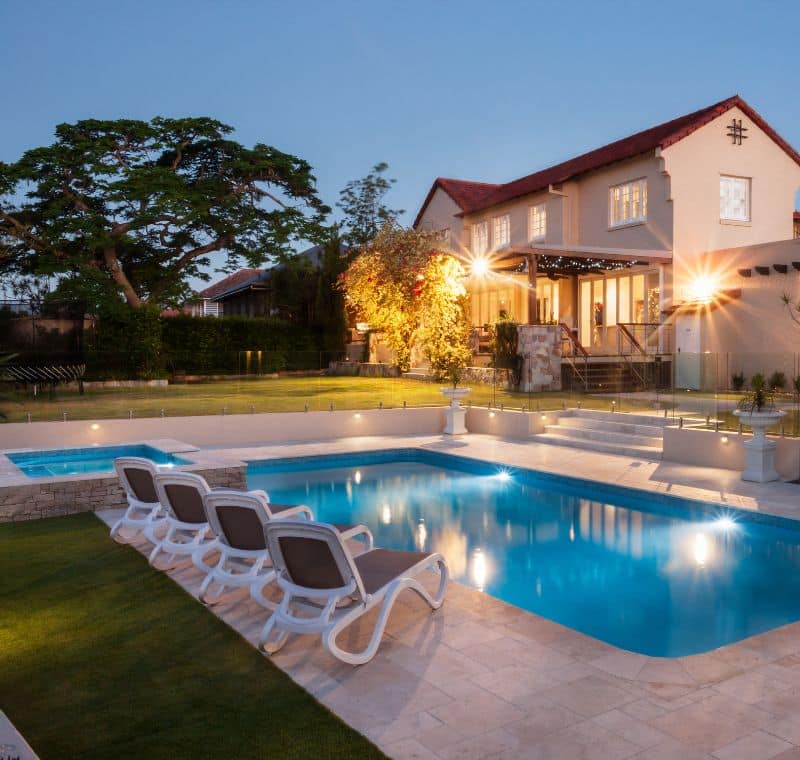

Fiberglass vs. Concrete Pools
Which is Right for You?
Pool School—To start this off, the choice is not a one-size-fits-all answer. At R & R Swimming Pools, we install/build both, and to debunk a common misconception, both are similarly priced in Central Florida. Both our fiberglass and concrete shells offer a limited lifetime warranty. Keep reading to learn more, and contact our pool builders today with any questions.
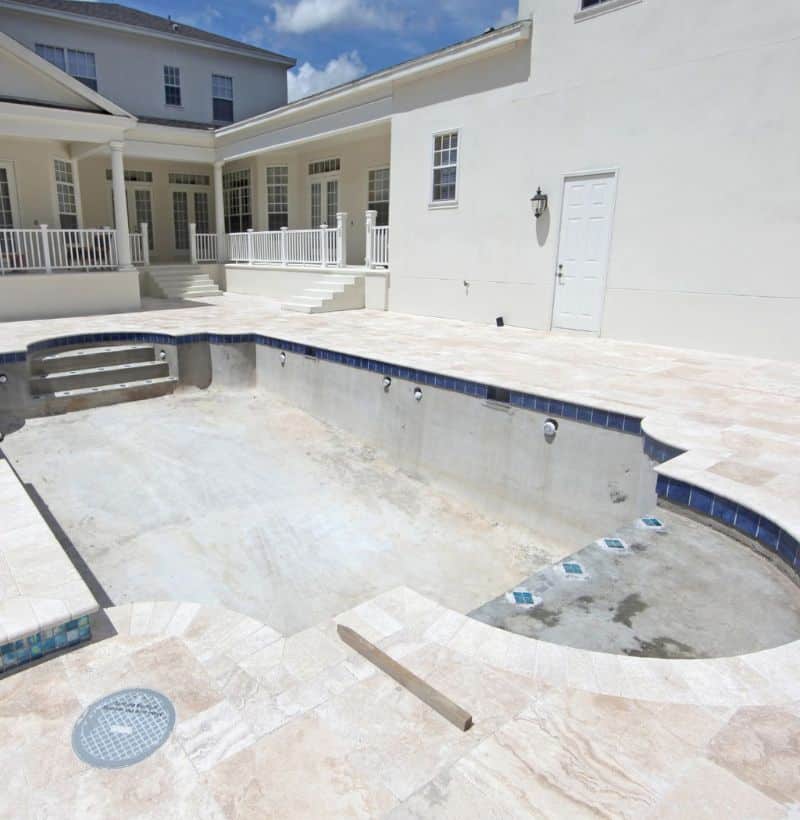
Concrete Pools
Concrete pools are made on site with a shell thickness of 6in – 12in thickness. Although they are called concrete pools, the specific material used is either gunite or shotcrete. Both materials are excellent for pool building and are extremely cool to watch being sprayed out of a high speed nozzle during the build. The main difference is that gunite is a dry mixture with a little water added at the nozzle and shotcrete is a wet mixture. They both have slight advantages but the real key is having a highly experienced crew who specialize in either gunite or shotcrete. We at R & R Swimming Pools use gunite because we have an expert crew that is the best of the best with gunite. Now that we covered the basics what are the pros and cons of concrete pools?
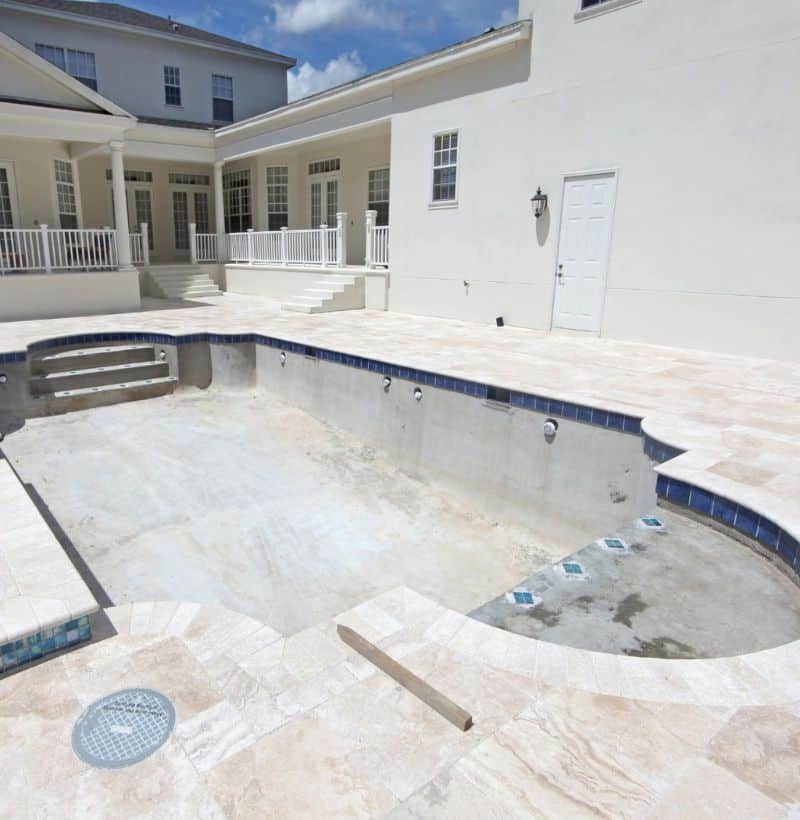
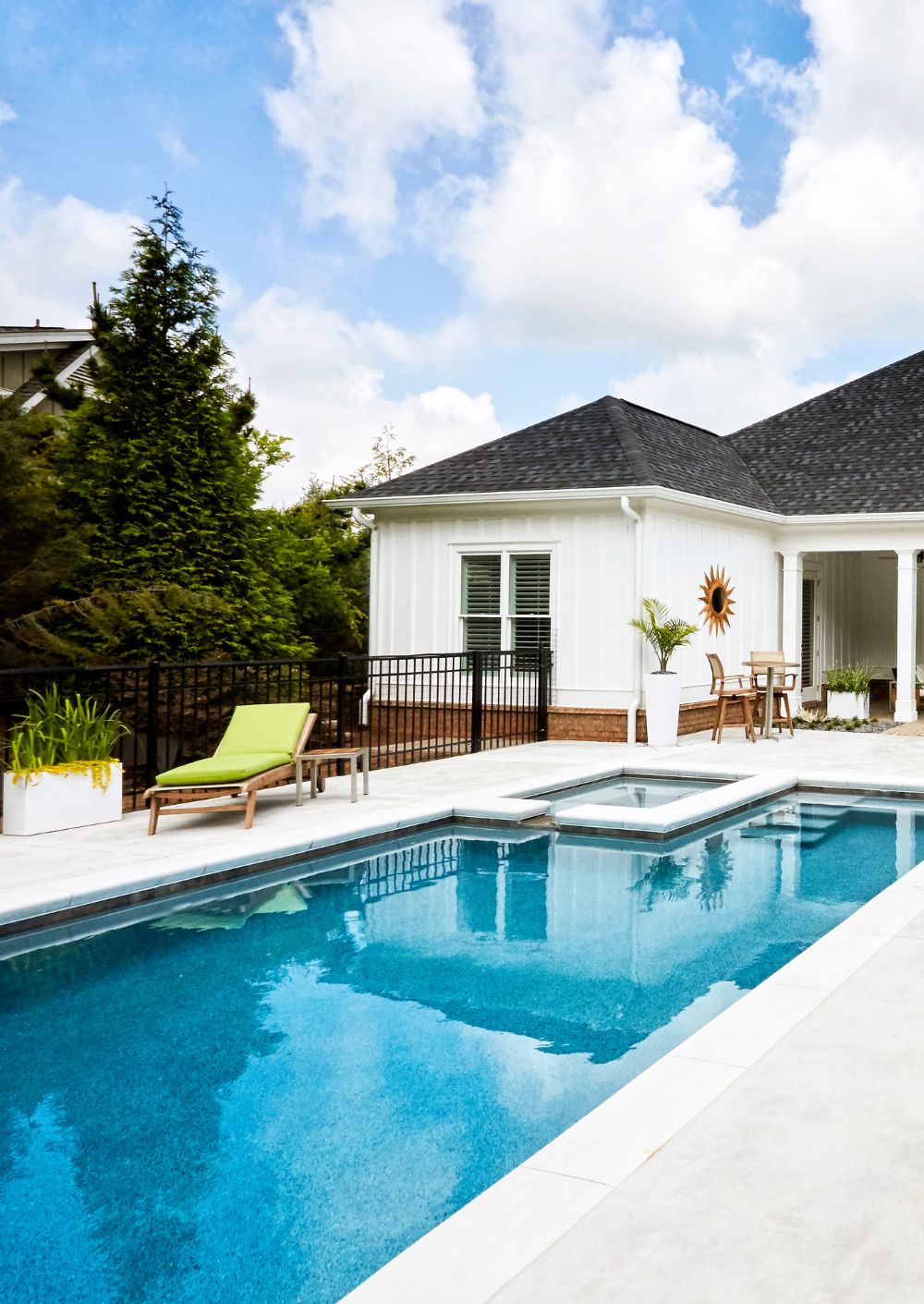

Concrete Pools Pros & Cons
With concrete pools any shape, design, or size is possible. A concrete pool is truly custom. We will listen to you and build exactly what you envision with expert guidance.
Concrete pools offer more water features. Since the concrete pool shell can be modified in shape, height, and thickness, it allows us to bring different features to life that would not particularly be ideal or possible with a fiberglass pool.
The biggest negative of concrete pools is the higher maintenance cost. A finished concrete pool at a microscopic level is not as smooth as fiberglass pool. This rougher surface allows for algae to attach and grow easier. A pebble/quartz finish is a cement based product that has to cure. Most of this curing happens during the first 30 days after the pool is filled with water but this process for the most part will continue for many months after. During this process, extra chemicals are needed to maintain the proper water balance.
Water chemistry is extremely important in all pools! Though concrete pools are more susceptible to issues from improper water chemistry. In concrete pools, stains adhere more easily than in fiberglass pools due to their rougher surface. Most stains can be removed with little effort by a pool professional if caught early.
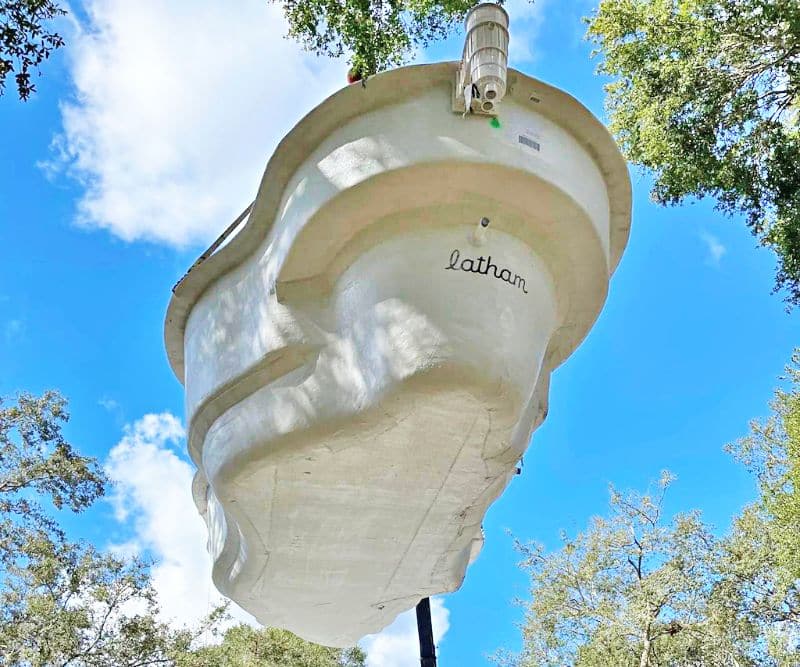
Fiberglass Pools
We at R & R Swimming Pools are an authorized Latham Pool Installer. We receive your ideal shell model from the factory and then place the shell into a perfect size hole that we dig the day before. The fiberglass shell comes with a limited lifetime warranty from Latham and is made by spraying fiberglass resin onto the shell mold. Let’s get the crane for this one!
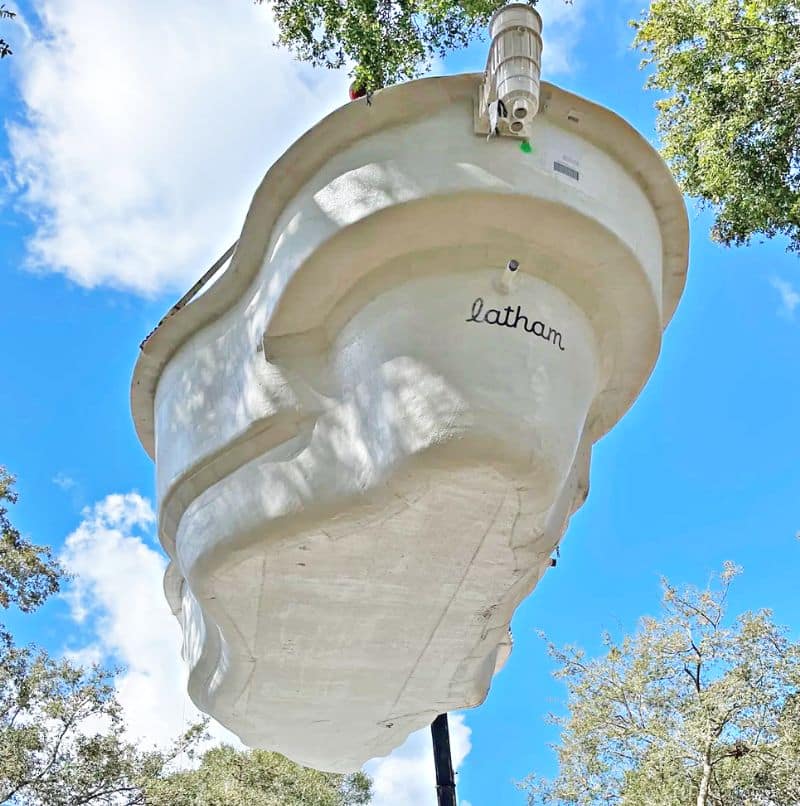
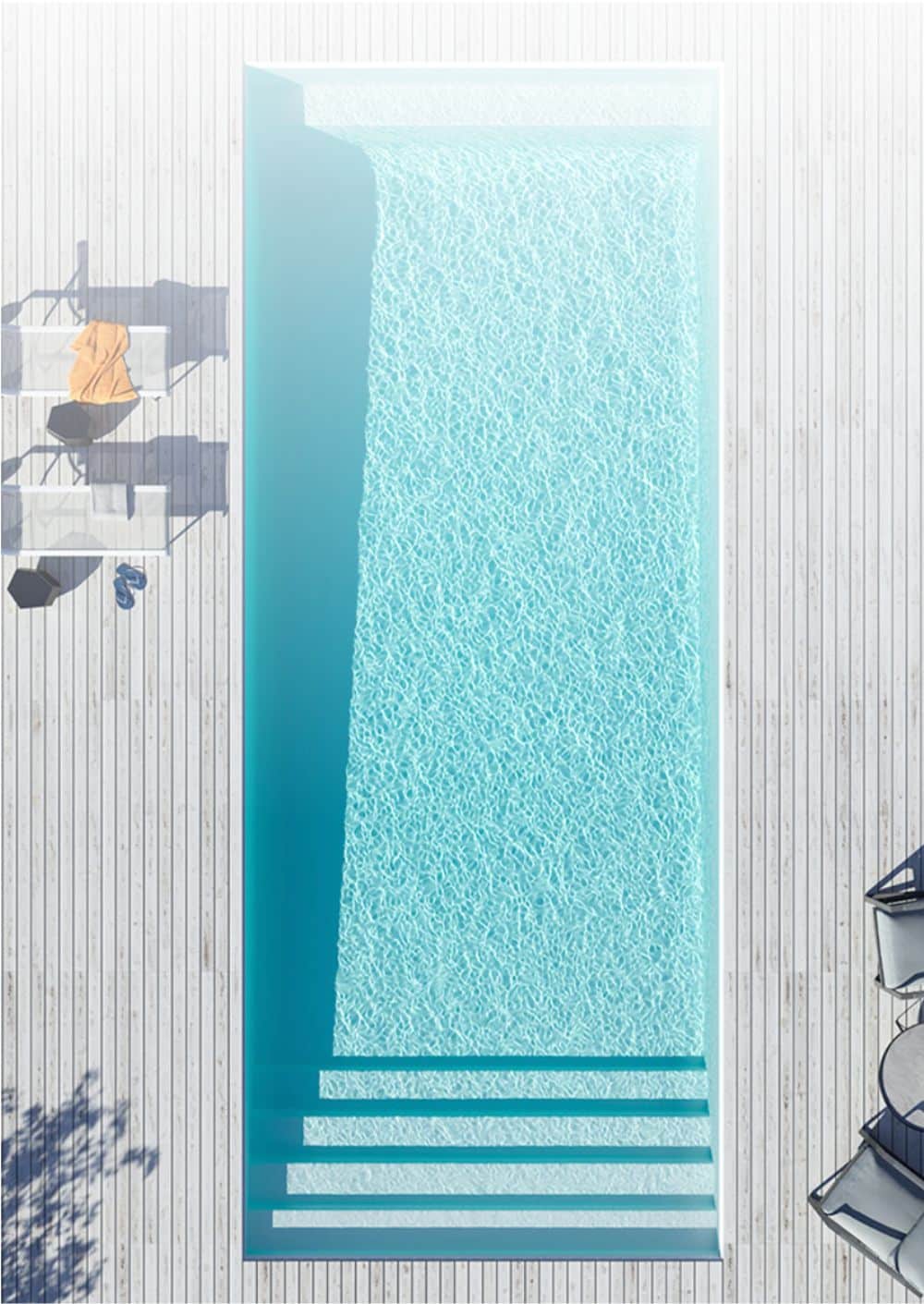

Fiberglass Pools Pros & Cons
The biggest positive with fiberglass pools is that they require less maintenance and chemicals than all other pool types. The reason for this is two fold. The first is its smooth surface, which hinders algae from attaching. The second is that the shell is completely cured and is not releasing compounds into the pool that will affect water chemistry.
With Fiberglass pools you can start swimming sooner and have a shorter construction period. Typically, within three days of us starting construction on a fiberglass pool you will have have a pool in the ground, filled with water, and the surrounding landscape graded. Typical construction period is about 2-4 months with fiberglass pools and 4-6 months with a concrete pool.
A fiberglass pool is not always possible for every yard. Since a fiberglass shell is pre-made, we have to place the shell in the hole we dig the day before. If there is a lot of large trees, we might not be able to crane the shell in. We at R & R Swimming pools will find a way if possible and will be observing/assessing options when we visit the property during the design phase.
A truly custom shape/size is not possible with a fiberglass shell. Luckily there is a plethora of options to choose from—visit Latham.com to view all of the different options.
R & R Pool School
There is not a standard right or wrong answer in the concrete vs fiberglass pool but there is a right answer for you. Hopefully this has given you some idea of which one is right for you. Give us a call, we would love to answer any further questions and be the pool builder for you.


